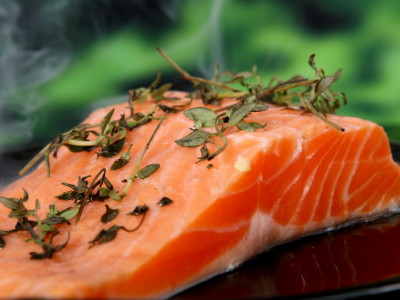Demand for salmon is soaring in China, but what impact will the Chinese market have on the world?

China's demand for salmon is growing at an unprecedented pace, with farmed salmon imports set to increase by 46% year-on-year in 2023. Dave Little, professor of water resource development at the University of Stirling in the UK, explains what this incredible growth will mean for the global market.
How China's appetite for salmon could reshape global seafood markets – new research

According to a paper published in December 2024, the purchase of salmon products through e-commerce platforms has exploded in China due to logistics disruptions caused by the COVID-19 pandemic and the rapid development of the Internet. Compared to other high-priced seafood, salmon is easier to maintain its taste and quality even when frozen, and is considered a good match for e-commerce. China's explosive demand for salmon has major salmon exporters such as Scotland, Norway, Chile, Australia, Canada, and Iceland competing to meet the needs of a huge, rapidly evolving market.

However, the rapid growth of the Chinese market raises significant sustainability concerns, Little said. Meeting China's demand for seafood requires fast delivery of goods purchased through online platforms. Transporting Atlantic salmon to the Chinese market involves complex logistics and significant environmental costs, and the carbon footprint of transportation, combined with the capital-intensive nature of salmon farming, has a significant negative impact on the environment, Little said.
China has been working to develop an Atlantic salmon industry in the country, but environmental constraints and technical challenges have prevented the industry from being successfully established. Meanwhile, in 2018, the Chinese government allowed rainbow trout,

Substituting salmon demand with farmed rainbow trout serves as a new, more sustainable option, reducing the carbon footprint of imports with locally sourced fish. In fact, a study involving blind taste tests published in December 2024 found that many Chinese consumers could not distinguish between domestic rainbow trout and imported Atlantic salmon when tasting them. However, when informed of the country of origin, testers' preferences were heavily skewed toward Atlantic salmon, so the paper concluded that further approaches are needed to develop the salmon market.
China's evolving seafood market offers opportunities for global traders, but also valuable lessons on balancing quality and freshness with sustainability, Little said. Balancing growing demand for premium seafood with environmental responsibility means investing in environmentally friendly aquaculture methods, including measures such as reducing feed waste and equipping farming systems to minimize water use. 'As rainbow trout gains prominence in China's seafood industry, the nexus of consumer preferences, environmental concerns and economic opportunity could shape the future of the global salmon trade,' Little said.
Related Posts:
in Food, Posted by log1e_dh







